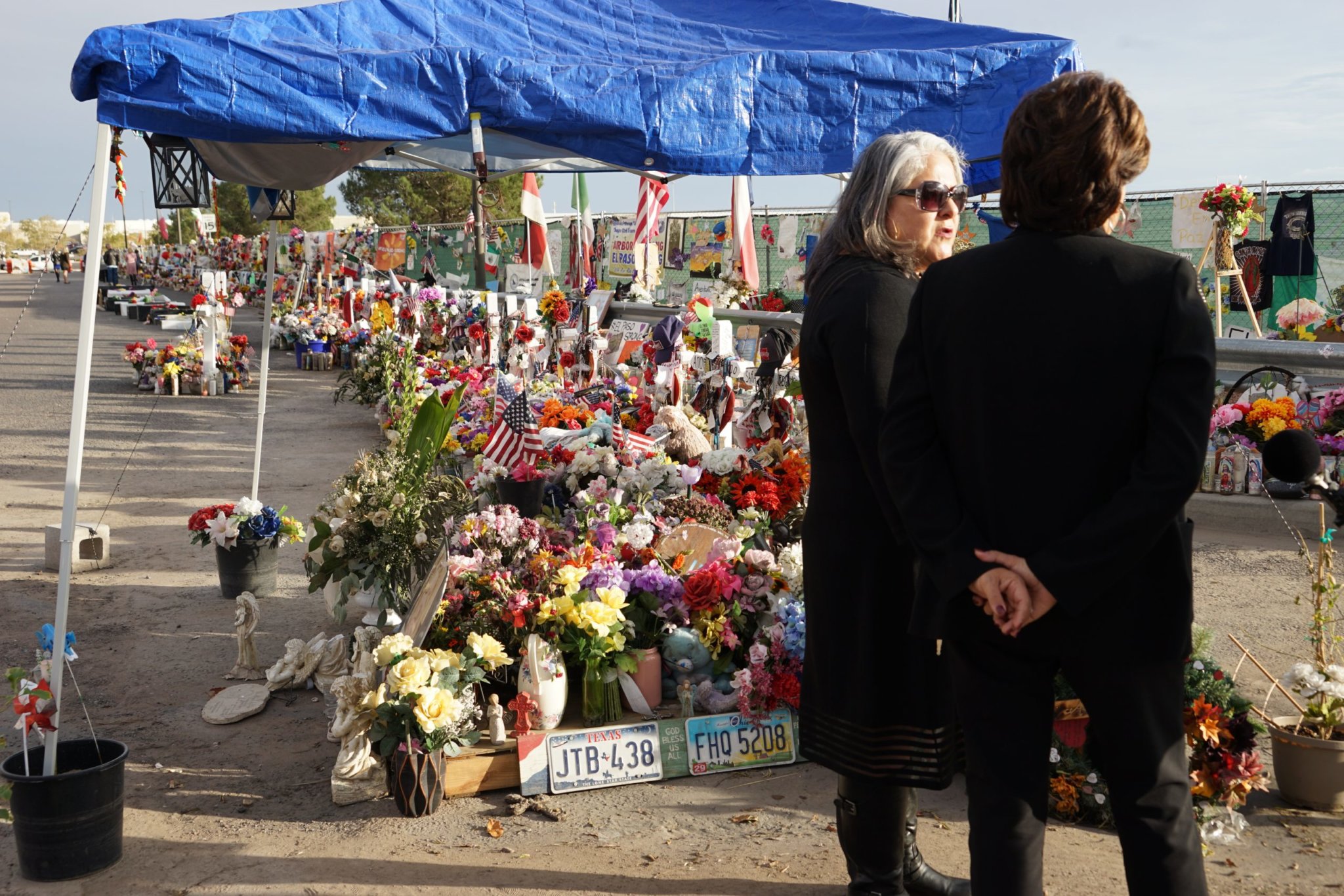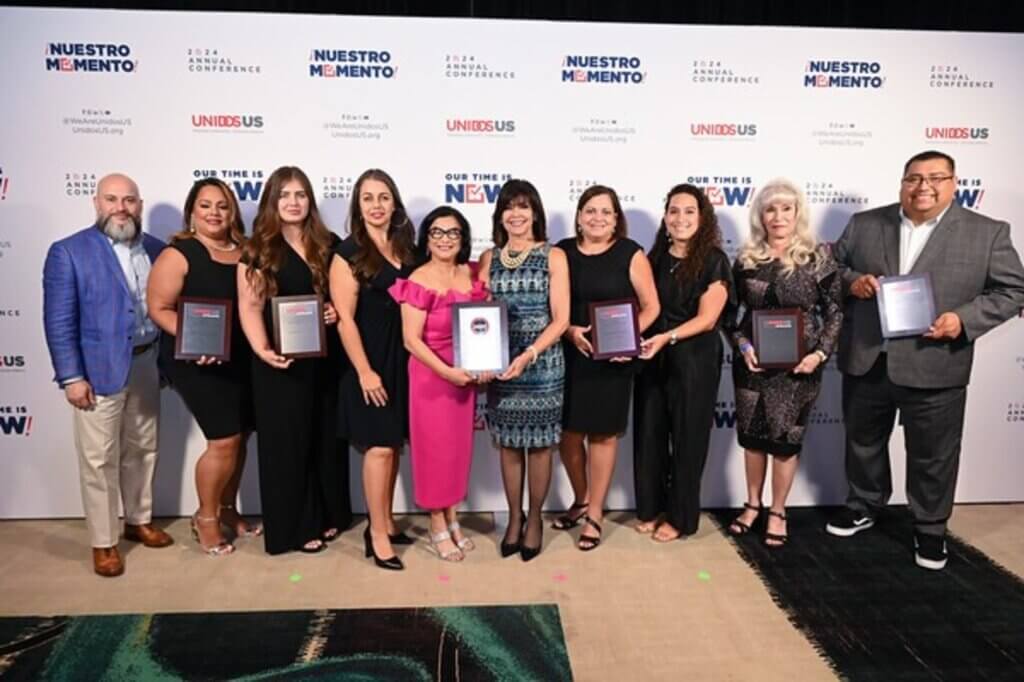Leaders of Impact: A Talk with Affiliate Leader Laura Ponce, Executive Director of Project BRAVO
The UnidosUS Affiliate Network includes a number of exceptional leaders nationwide whose vast knowledge and expertise deserves to be highlighted. To achieve this, UnidosUS is launching “Leaders of Impact,” a series of profiles showcasing leaders from across the Network, highlighting what brought them to this work and their leadership philosophy.
We kick off this series with Laura Ponce, Executive Director of Project BRAVO in El Paso, Texas and UnidosUS Affiliate Council Chair and UnidosUS Board Member. Laura Ponce exemplifies visionary leadership and a steadfast commitment to community service.
Tell us about growing up with your family and going to school? How did your early life experiences affect your professional trajectory?
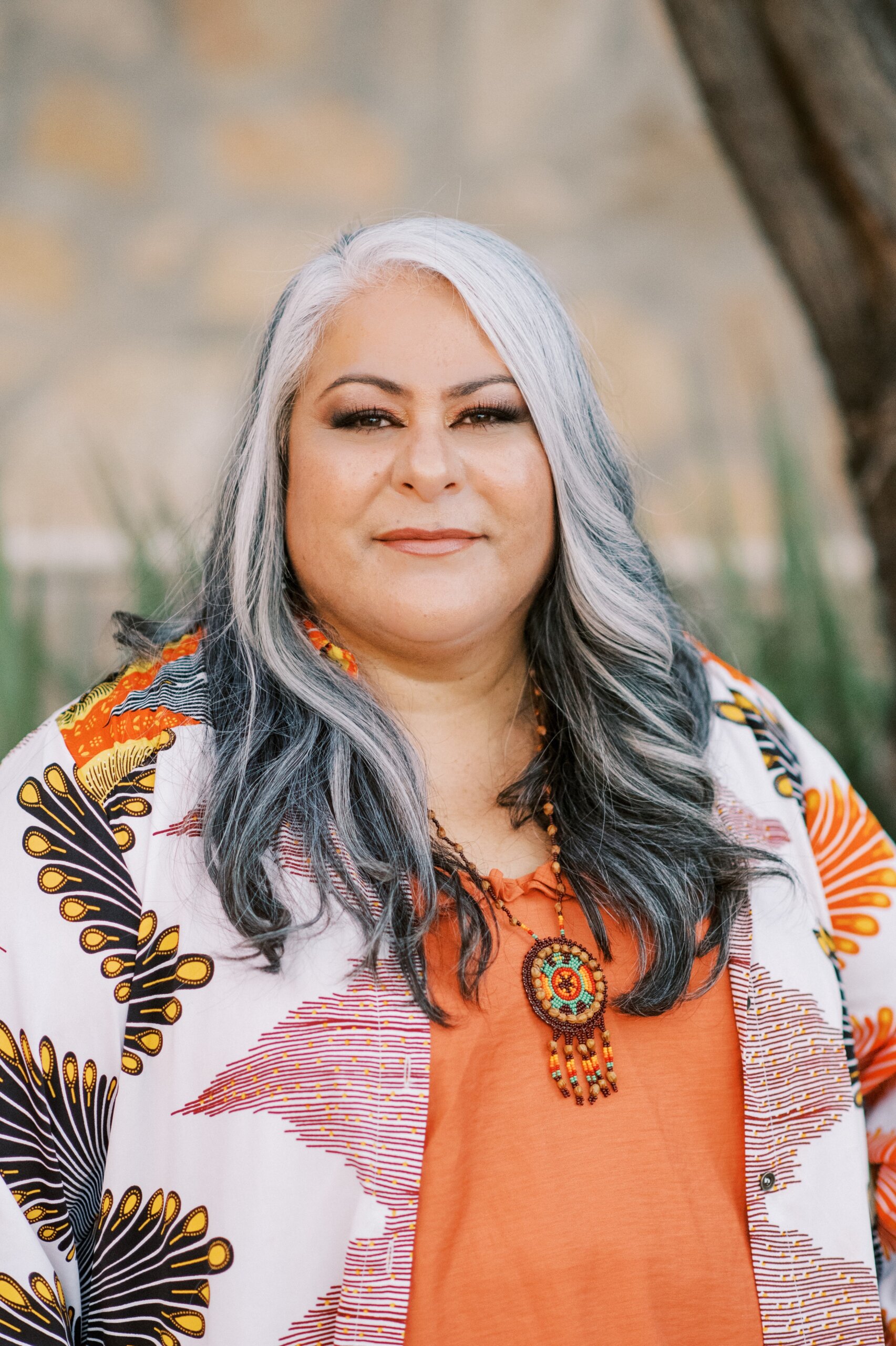 I am the youngest in a family of eight daughters that came from a small farming and ranching town in the state of Chihuahua, Mexico. We moved to the United States when I was three years old and I grew up in the city of El Paso, Texas. When we moved, my four oldest sisters went to work at local factories like Levi’s and Robertshaw Controls Company while the youngest four of us got to go to public school. My access to free and quality education (thanks to Head Start) had a staggering impact on the opportunities I had versus those that were never given to my older siblings. Another big influence in my life was my connection to my family in Mexico. I have wonderful memories of visiting the “ranchito”, spending time at my Abuelita’s house and riding horses with my cousins.
I am the youngest in a family of eight daughters that came from a small farming and ranching town in the state of Chihuahua, Mexico. We moved to the United States when I was three years old and I grew up in the city of El Paso, Texas. When we moved, my four oldest sisters went to work at local factories like Levi’s and Robertshaw Controls Company while the youngest four of us got to go to public school. My access to free and quality education (thanks to Head Start) had a staggering impact on the opportunities I had versus those that were never given to my older siblings. Another big influence in my life was my connection to my family in Mexico. I have wonderful memories of visiting the “ranchito”, spending time at my Abuelita’s house and riding horses with my cousins.
In high school, I strived academically. I was a science “nerd” and had one of my high school science projects published in the Journal of Applied Physics. I then attended Harvard University where I graduated with honors and learned about my Mexican American history thanks to visiting professors and a diverse curriculum. Even though we were a small group of about 30 people, my Mexican American peers and I were extremely active. We had a Ballet Folklorico group, a theater group and a Harvard Migrant Farmworker Committee that fundraised to bring Cesar Chavez to the campus to speak in the early 1990s.
After graduation, my intention was to take a year off to work and then go to medical school. I worked in a clinic in Jamaica Plain, a suburb of Boston, with a large Latine population. As a Women’s Health Counselor, I provided family planning counseling, HIV testing and counseling, parenting classes to teenage parents and other types of health education. Up to this point in my life, I was a very socially sheltered person. This experience had a profound change in my perspective as a person living in a world that is economically, socially, and ethnically diverse.
As a person that grew up in a very conservative household, talking to people about their sexual health was extremely challenging for me. The experience allowed me to shed a lot of my preconceived notions given to me by my family and society about how people “should” live their lives. I also met many wonderful advocates that taught me the importance of personal independence, a loving community, and a joyful life. The overwhelming lesson I learned was that we all have a duty to fight for the rights for people to make decisions about their bodies and have access to resources that will optimize everyone’s health and happiness. As a result of my experience as a Women’s Health Counselor, I changed my path and have worked in the nonprofit and health and human service sector for all my professional career.
How did you come to join Project BRAVO? Share a little bit about the organization’s mission and why it’s important to you?
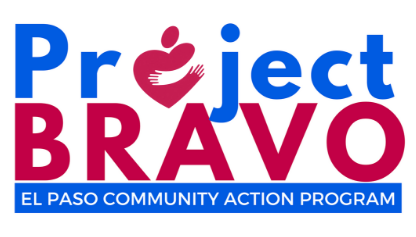 Project BRAVO’s mission is to build bridges to opportunities so that individuals and families thrive in our Borderland community. Project BRAVO was founded in 1965 as a Community Action Program (CAP). CAPs were created during the War on Poverty, a platform by President Johnson and Congress that passed legislation in the attempt to eliminate poverty in our country. There are over 1,000 CAPs across the U.S. and territories.
Project BRAVO’s mission is to build bridges to opportunities so that individuals and families thrive in our Borderland community. Project BRAVO was founded in 1965 as a Community Action Program (CAP). CAPs were created during the War on Poverty, a platform by President Johnson and Congress that passed legislation in the attempt to eliminate poverty in our country. There are over 1,000 CAPs across the U.S. and territories.
I was encouraged to apply for the job of Executive Director of Project BRAVO fifteen years ago by several people with connections to the organization, including a professor from my Master’s in Public Administration program at the University of Texas at El Paso. The organization had fallen on difficult times due to mismanagement and was at risk of losing its designation as a CAP. At the time, Project BRAVO had a terrible reputation in the community. I would send families to Project BRAVO for help only to have them come back saying that they were treated with disrespect, and they often did not receive the services they needed. At first, I resolved not to apply because I did not feel confident that I could change the culture of the organization. However, after several conversations with peers and mentors who showed me the importance of stepping up for my community, I decided to apply for the position and was chosen as the new Executive Director in the fall of 2010.
Keep up with the latest from UnidosUS
Sign up for the weekly UnidosUS Action Network newsletter delivered every Thursday.
The challenges I experienced in my first years at Project BRAVO often seemed unsurmountable, but I was blessed with a network of people that provided advice, guidance, and emotional support. Project BRAVO required an extreme financial and programmatic reorganization that took three years to fully implement. The bulk of my energy went to changing the culture of the organization. Today, Project BRAVO has a great reputation as an organization that cares about the community and treats all people with dignity and respect. I am very proud of my team and the difference we make providing multiple programs and services that address the root causes of poverty and provide economic relief to people in crisis.
In your leadership role, what are the most important priorities that ensure the success of the organization and its impact on the community?
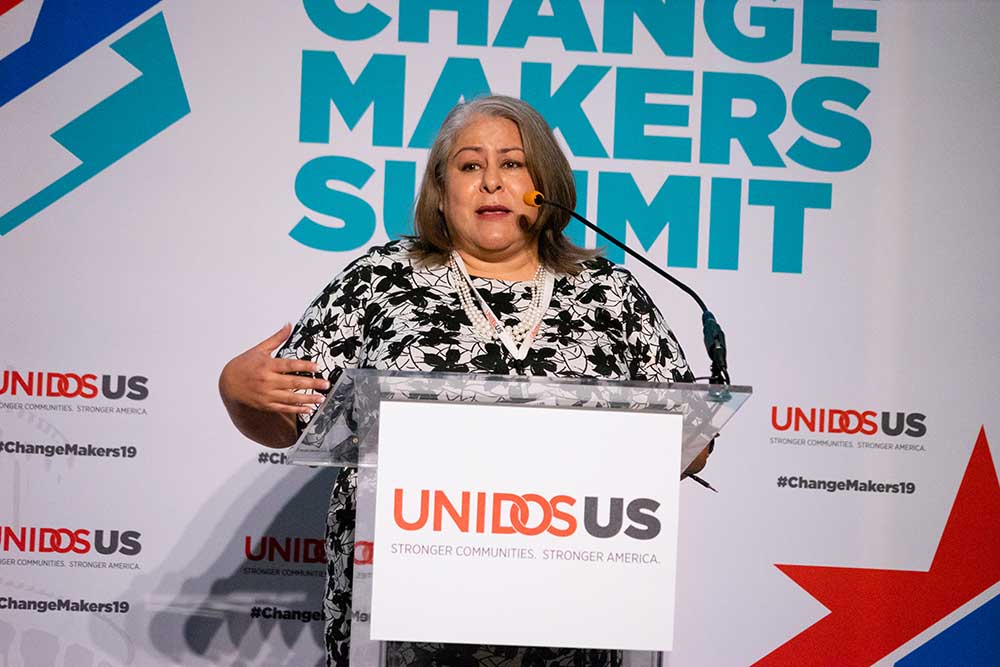
I think the most important priority I have is fostering a culture of dignity, respect and learning at every level in the organization. The people of Project BRAVO are fully responsible for the client experience, and they cannot help the community if they work in an atmosphere that is unhealthy. We support our team by providing living-wage jobs that properly compensate people for the work they do regardless of whether they are frontline workers or members of the management team. We provide an excellent and affordable package of benefits so our team can take care of the health of their families and themselves. We adopt employee policies that support a healthy work environment, including plenty of time away from work to recharge. Our staff training and activities are designed to promote a culture of learning and build teamwork across the organization. We promote a culture of communication, especially when it comes to adopting practices that improve our clients’ experience.
As a Community Action Program, we employ the ROMA Cycle model (Results Oriented Management & Accountability) for all programs, services, and projects. The ROMA Cycle is as follows: assessment, planning, implementation, achievement of results, evaluation and then the cycle begins again. By seeing all programs, services, and projects as existing in a cycle, my team and I understand that nothing we do is set in stone. We are constantly assessing everything we do so that we can continuously improve and provide our community with the best programs and services possible. The ROMA Cycle has made us a more efficient and effective organization. The efficiencies we’ve gained have allowed us to reduce the number of staff and increase wages for existing staff. It has also allowed us to reduce our administrative costs and increase program benefits for our clients.
What advice would you offer to your younger self?
As a child of immigrants, it was very difficult to navigate between the expectations of my family and that of my new community. When I was younger, I wasted a lot of time trying to please other people and live up to expectations that did not belong to me. Once I gained confidence and worked to create a meaningful life for myself, life got a little easier. The advice I would give myself is that my happiness matters. Whether I am serving my community or being a good friend, finding connection, meaning and purpose empowers me to be the best person I can be.

